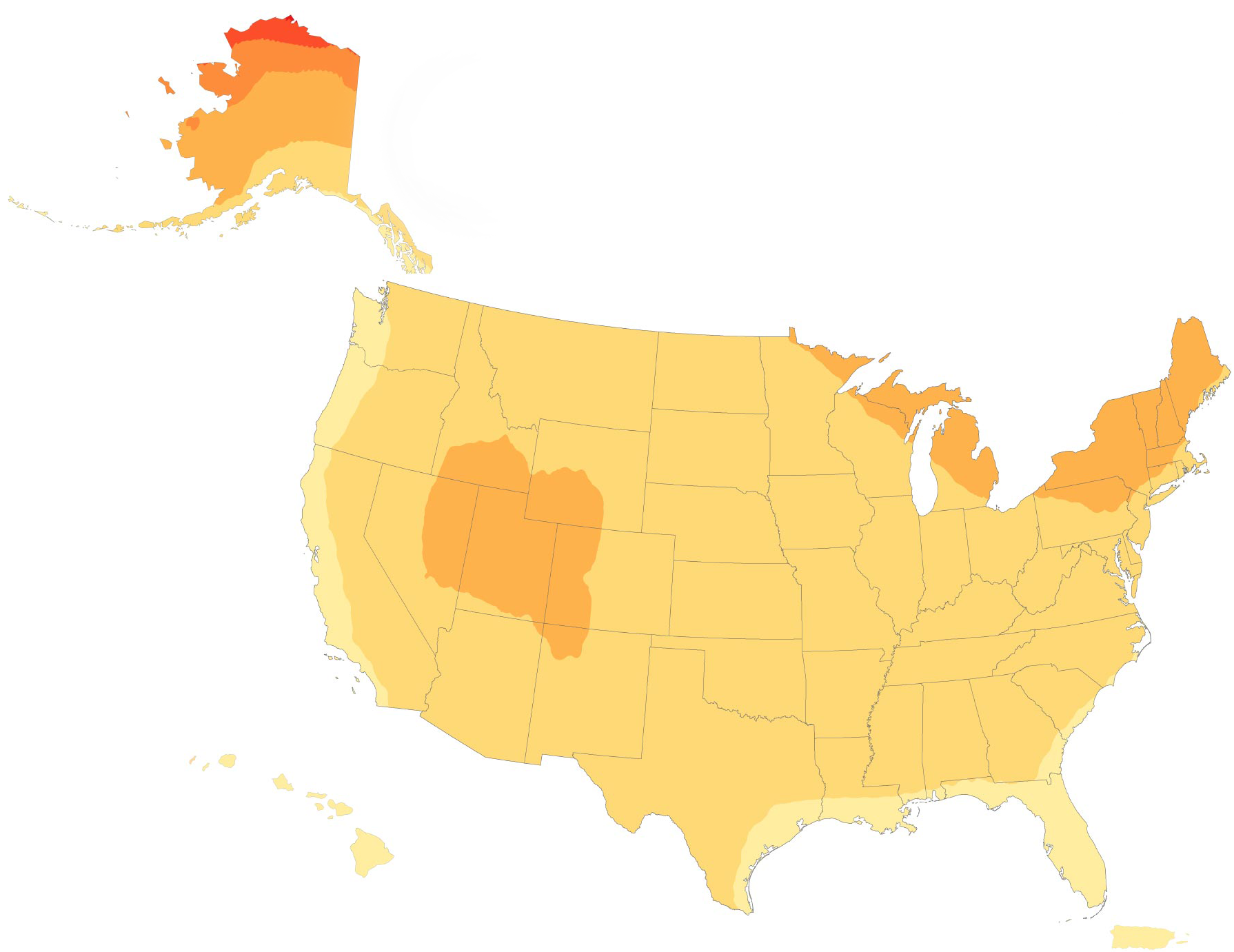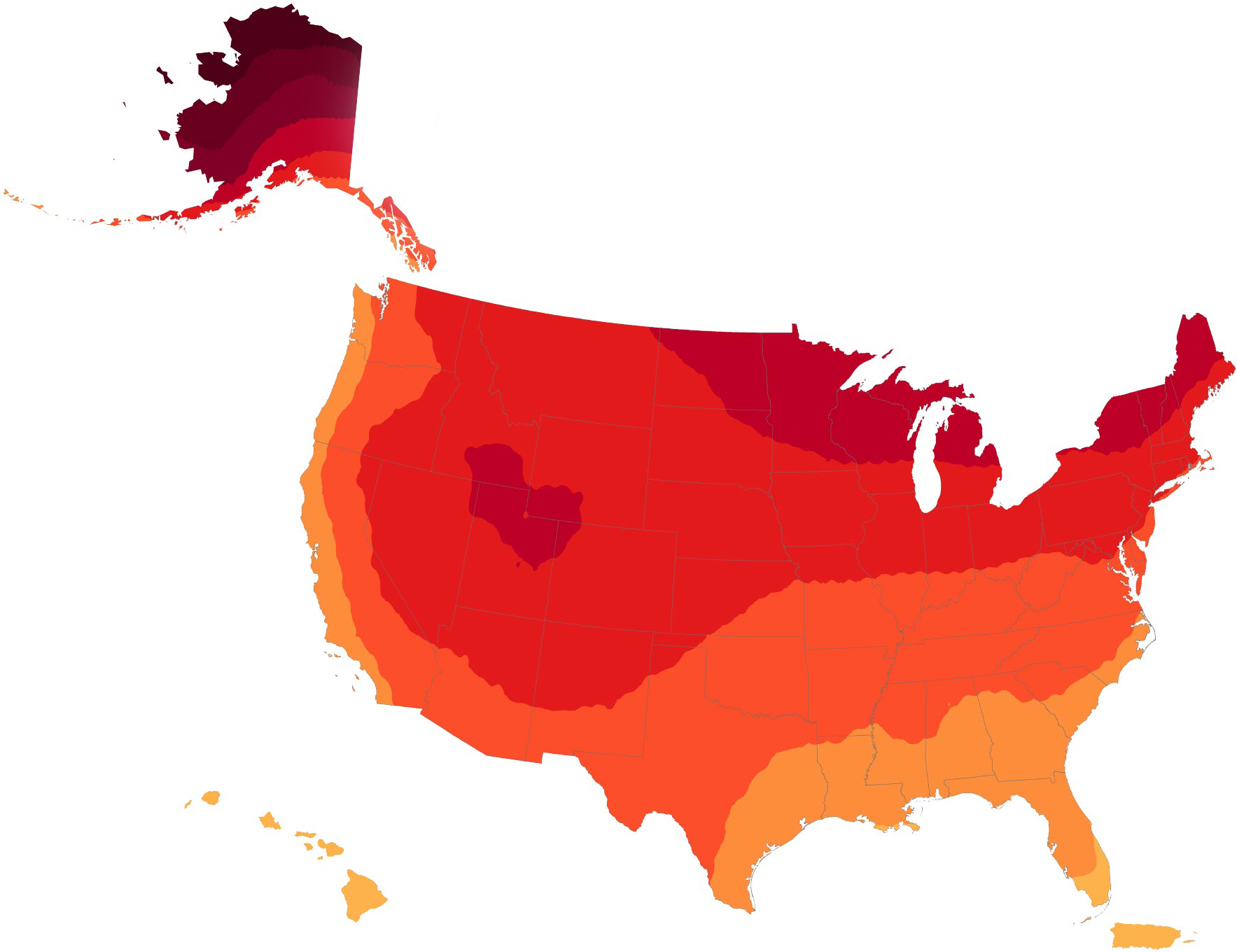From Wed. 11.29.23 NPR...
"As world leaders gather for the annual United Nations climate change summit, known as the Conference of the Parties or COP28, in Dubai tomorrow, one number will be top of mind: 1.5 degrees Celsius (2.7 degrees Fahrenheit). It's the amount countries have agreed to limit warming by the end of the century — an amount they're not on track to meet. These are the climate impacts the U.S. will see if warming goes beyond 1.5 degrees. "
U.S. temperature increases will exceed the global warming average
Warming doesn’t happen evenly across the world. Scientists measure climate change by averaging temperatures across the planet, but U.S. temperature increases are expected to be higher than the global average increase. Temperature rises in parts of Alaska could be double the global average.
INCREASE IN ANNUAL AVERAGE TEMPERATURE (°F)
1.5°C (2.7°F) of global warming

3°C (5.4°F) of global warming

------------------------------
And From:
Annual climate negotiations are about to start. Do they matter?
The 28th annual international climate negotiation known as the Climate of Parties takes place this week in Dubai, United Arab Emirates. World leaders will discuss climate change, efforts to reduce greenhouse gas emissions and who will pay for the costs of a hotter planet. President Biden will not attend.
Less wealthy nations need trillions of dollars to transition to renewable energy. Wealthy nations like the U.S. have not followed through on a promise from last year’s talks to set up a fund for the damage caused by climate change in poorer countries. So far, this fund is empty.
See how far good intentions go? While all the African and SE Asian delegates to the last conference looked them in the eyes, they acknowledged that they needed help.
No funds for those suffering already from climate change. They at least agreed that a fund should be established. But left it without any way to fund it, or distribute it!
World leaders are meeting from Nov. 30 to Dec. 12 to discuss the effects of climate change, efforts to reduce greenhouse gas emissions and the increasingly pressing question of who will pay for the costs of a hotter planet.
Attendance at the annual negotiations has ballooned and hit an estimated 45,000 people last year. Thousands of climate scientists, mayors, activists, corporate executives and representatives of major oil companies will also fly to the petroleum-dependent host country to attend hundreds of side events.
Background of COP-28:
At the end of the 2015 COP meeting, world leaders signed the landmark Paris climate agreement.
The Paris Agreement requires virtually every country on Earth to pledge how much they'll cut planet-warming pollution and update those plans every few years. The goal is to limit global warming to well below 2 degrees Celsius compared to temperatures in the late 1800s, and ideally no more than 1.5 degrees Celsius.
This year, world leaders are required to review humanity's collective progress toward that goal. And the situation is not good.
A U.N. analysis released this month found that global greenhouse gas emissions are still rising, and the planet is on track for at least 2.5 degrees Celsius of warming by the end of the century. And while it's still possible to stay below 2 degrees of warming — and every tenth of a degree of warming the world avoids will save lives — scientists warn that the 1.5 degree target is slipping away.
Last year's COP27 meeting in Egypt ended with a watered-down agreement that left out language calling for a phaseout of all fossil fuels — the biggest driver of global warming.
The summits have become a circus, "with the petrostates as the ringmasters" and everyone else as "the clowns," Sandrine Dixson-Declève wrote last year, as co-president of The Club of Rome, a nonprofit in Switzerland that works on climate change
Rishikesh Ram Bhandary, assistant director of the Global Economic Governance Initiative at Boston University, says he understands the public's frustration with the climate talks. Part of it seems to stem from a mismatch between the U.N.'s multilateral process, which ensures every country has a say but often delivers incremental progress, and the urgency people feel as the impacts of climate change get worse.
That tension has only grown as the United Arab Emirates, a big oil producer, prepares to host this year's meeting
Given its knowledge of oil and gas, the UAE has a chance to chart a practical but ambitious path to move the world off of fossil fuels, Dixson-Declève says.
"That would be the perfect scenario," she says.
But the world seems to be moving in the opposite direction. António Guterres, the U.N. secretary-general, said earlier in November that governments "are literally doubling down on fossil fuel production."
SOURCE: Annual climate negotiations are about to start. Do they matter?
=============
And the big question which hasn't been brought up (again) which occurs with each world-wide meeting, is, "How BIG is the carbon footprint from the jet fuel to bring all those delegates and vendors to this meeting?" Much of a meeting could be held by Zoom these days. But I guess all the politicking has to occur in the halls and behind closed doors...which requires in-person conversations...or does it?

It would be nice if all countries follow through with their agreement and promise. Take care, have a great day!
ReplyDeleteSeeming to have an agreement isn't the same as actually doing anything. A lot of hot air.
DeleteA complicated affair.
ReplyDeleteAs it is, a lot of the real work at such things is done in person, away from the table.